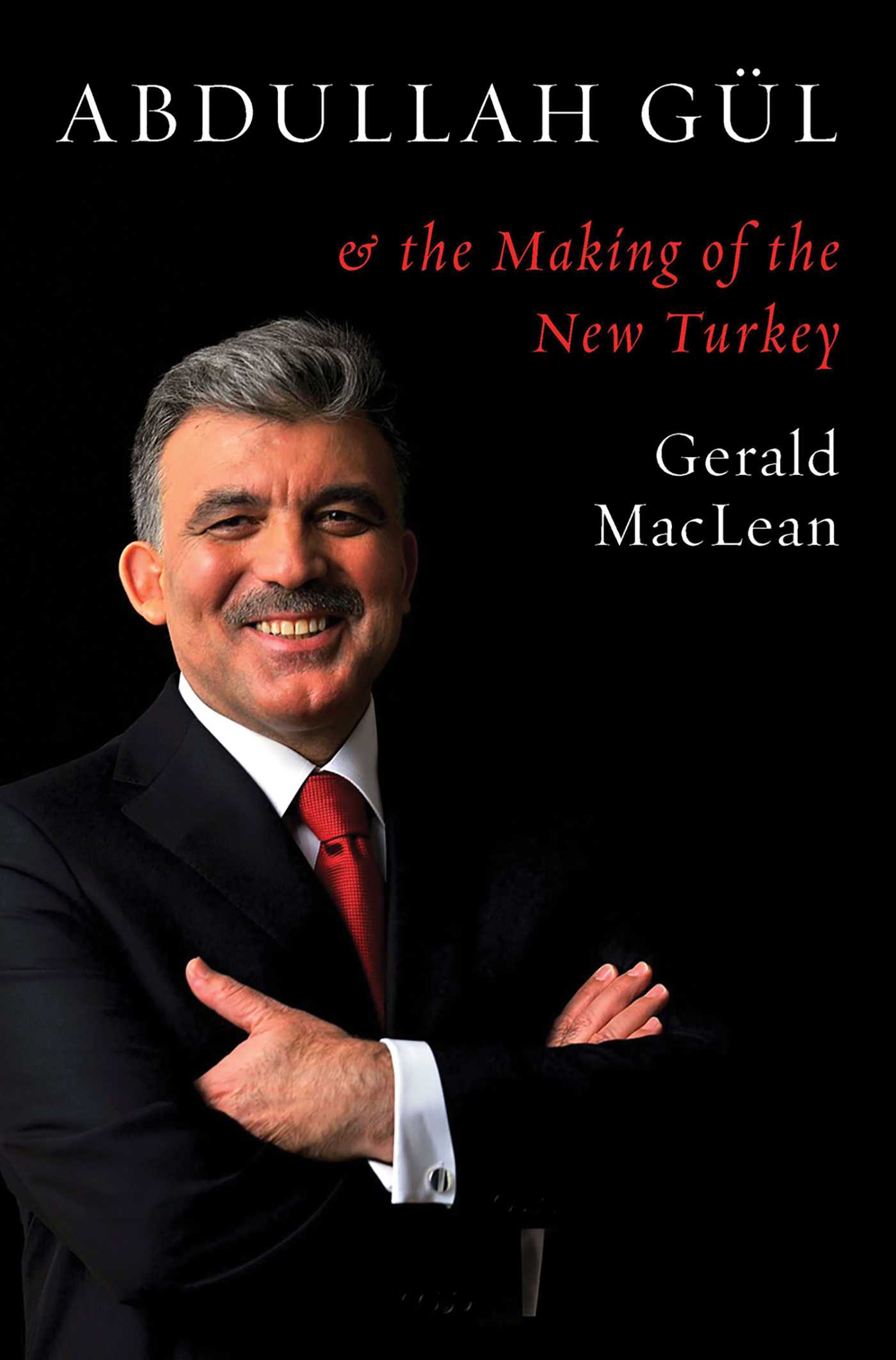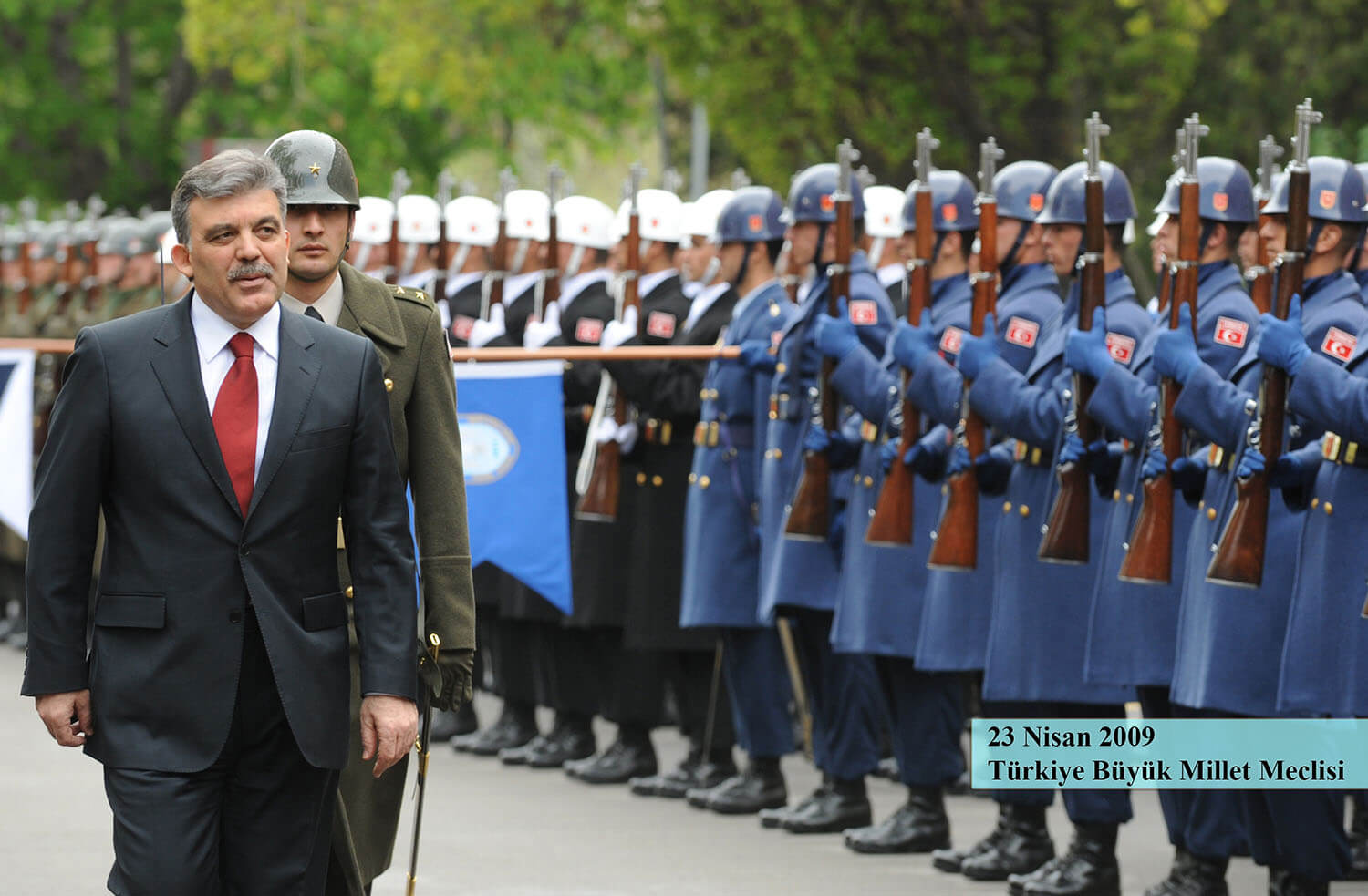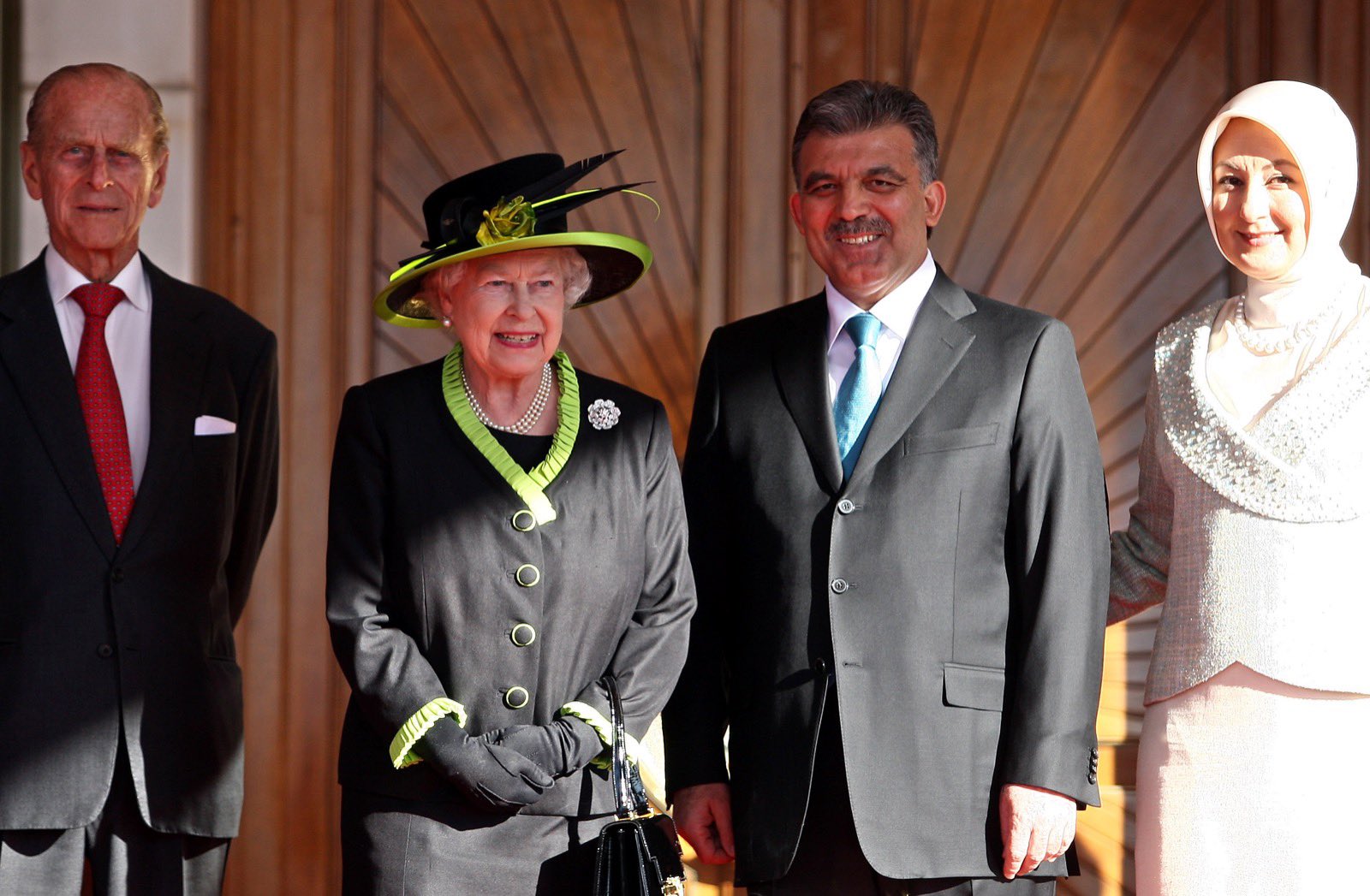Abdullah Gül
Abdullah Gül
 Turkey
TurkeyAbdullah Gül was born in Kayseri, a historically prominent town for trade in central Anatolia, on October 29, 1950. The Gül family takes its name from Kayseri’s Gülük Mosque. Gül’s ancestors, members of a family tree that can be traced to the 13th century, were among the first imams of this Seldjuk-era mosque. His grandfather Hayrullah Efendi, a veteran of the Turkish War of Independence, was a businessman. His mother, Adviye Gül, whose father was a poet and a teacher, is a member of the Satoğlu family, an old and established family in Kayseri. Abdullah Gül’s father, Ahmet Hamdi Gül worked as a foreman at the Aircraft Factory, which was the first industrial facility in Kayseri. Father Gül is a well-known and respected individual for his contributions to social life. After retirement, Ahmet Hamdi Gül established his own business in 1972 and is still running business in industry. He has another son and daughter. There are many academicians, poets, writers and bureaucrats among the family members.
Abdullah Gül was born in Kayseri on October 29, 1950. After his graduation from Kayseri High School, he continued his education at Istanbul University in the Department of Economics. He spent two years in London and Exeter for his academic studies while pursuing his PhD. Gül received his doctoral degree from Istanbul University in 1983 and served in the establishment of the Department of Industrial Engineering at Sakarya University, where he taught economics to engineering students for five years. He became an associate professor of international economics at Istanbul University in 1989.
Working as an economist at the headquarters of the Islamic Development Bank in Jeddah from 1983 to 1991, Abdullah Gül was elected from Kayseri as a Member of the Turkish Grand National Assembly (TBMM) for five consecutive terms from 1991 to 2007.
Gül served in the TBMM as a member of the Plan and Budget Committee from 1991 to 1995. He was also a member of the Turkish delegation at the Parliamentary Assembly of the Council of Europe (PACE) from 1991 to 2001, working in the PACE Committees on Culture, Statutes, Politics and Economic Development. Gül also served as a member of the Foreign Affairs Committee at the TBMM from 1995 to 2001. He was Spokesperson and Minister of State in the 54th Government, which was formed in 1996.
Abdullah Gül pioneered the Reformist Movement in the Virtue Party and run for chairman in 2000. He was among the founders of the Justice and Development Party in 2001 and served as Vice Chairman for Political and Legal Affairs.
He also served as a member of the NATO Parliamentary Assembly in both 2001 and 2002. Gül was awarded with the “Pro merito medal” and the title of “Permanent Honorary Member” in 2002 for his 10 years of valuable work in the PACE.
He became Prime Minister and formed the 58th Government on November 18, 2002. He served as Deputy Prime Minister and Foreign Minister in the 59th Government from 2003 to 2007.
Abdullah Gül was elected by the TBMM as the 11th President of the Republic of Türkiye on August 28, 2007.
The President holds honorary PhD degrees from Bourgas Free University, (Bulgaria), University of Exeter (United Kingdom), Baku State University (Azerbaijan), Dimitrie Cantemir Christian University (Romania), Kazan State University (Russia), Xi’an Northwest University and Xinjiang University (China), Amity University (India), University of Dhaka (Bangladesh), Quaid-i Azam University (Pakistan), Hankuk University (South Korea) and University of Indonesia (Indonesia) received in 2003, 2005, 2007, 2008, 2009 2010, 2010 and 2011 respectively. President Gül was also granted honorary doctorate in economics by Northwestern University (China) in 2009, and he holds honorary professorship title given by Xinjiang University in 2009, by Yusuf Balasagun National University (Kyrgyzstan) in 2009, by Ahmet Yesevi University (Kazakhstan) in 2010 and by Turkmen State Institute of Economics and Management in 2013.
President Gül was awarded with the British "Knight Grand Cross of the Order of the Bath”, Portuguese “Grande Colar”, the “Order of the Dutch Lion” by the Netherlands, the Order of the Golden Eagle by Kazakhstan, the State Medal by Turkmenistan, and the Swedish “Royal Order of the Seraphim” as well as the national decorations from Italy, Qatar, Kuwait, Cameroon, Saudi Arabia, Hungary and Pakistan.
Abdullah Gül won the 2010 Chatham House Prize.
He is married to Hayrünnisa Gül and is the father of three children, Ahmet Münir, Kübra, and Mehmet Emre.
After completing Gazi Paşa Primary School and Nazmi Toker Junior High School, Abdullah Gül attended Kayseri High School which has many prominent alumni. Upon graduating, he entered the economics department at Istanbul University.
Gül’s university years were a tumultuous period marked by political struggle and student movements in which he was involved as any other concerned student at the time. He attended demonstrations and contributed to publications. He was among active student leaders of the Turkish National Student Union (MTTB) which was one of the foremost student organizations of the era. The experiences and friendships of those years have been invaluable for Abdullah Gül throughout his life.
Gül completed his undergraduate degree at Istanbul University, Department of Economics in 1974 and received his doctoral degree from the same institution in 1983. During his graduate studies, he lived in London and Exeter respectively for two years to learn English and conduct research on his dissertation.
While pursuing his academic career, Gül served in the founding of the Department of Industrial Engineering at the Sakarya University and taught economics to prospective engineers for five years.
In 1983, he moved to Jeddah, Saudi Arabia, to work as an economist at the Islamic Development Bank. He lived in Jeddah for eight years with his family. Through his extensive travels while working with the Islamic Development Bank, Gül was able to observe the diverse spectrum of economic, political, and social structures of the countries in different regions of the world which expanded his vision and helped him in his political life.
In 1989, Abdullah Gül became an associate professor in International Economics at Istanbul University.
Abdullah Gül did not join politics as the result of a planned step. While in Kayseri for his annual vacation in the summer of 1991, his fellow townspeople suggested that he should enter politics and serve Türkiye as parliamentarian. He was elected to Parliament from the ranks of the Welfare Party in the first election in which he participated. From that day until he was elected President, he served as a Kayseri Member of Parliament in the TBMM for five terms.
As a Member of Parliament, Abdullah Gül has been proactive about gaining a greater understanding of the needs, values and concerns of the Turkish people. He served as a member of the Plan and Budget Committee during his first term from 1991 to 1995 and as a member of the Foreign Affairs Committee from 1995 to 1999. Abdullah Gül developed better relations with the Turkic world while serving as the Minister of State and Government Spokesman in the 54th Government, which was formed in 1996.
Abdullah Gül was a member of the Turkish delegation at the Parliamentary Assembly of Council of Europe (PACE) from 1991 to 2002. He served as a member of the NATO Parliamentary Assembly in 2001 and 2002. Gül was active in various committees of the PACE and built close friendships with colleagues from other member nations. The European perspective he gained in this organization, considered to be the moral conscience of Europe strengthened Gül’s commitment to align Türkiye’s practices in the areas of democracy and human rights with global standards. Gül’s experiences in the Council contributed to the rapidity of recent modernization reforms, enacted with the goal of EU membership. In 2002, Gül was awarded for his 10 years of valuable work in the PACE with the Pro merito medal and the title of Permanent Honorary Member.
During a time period that Türkiye was experiencing many political problems Abdullah Gül assumed a more active leadership role in the party. At this time, Gül was already leading the ‘Reformist Movement’ in the Party with his close colleagues, a movement that aimed to integrate Türkiye with the world through the improvement of democratic values, human rights, and rule of law, while at the same time respecting people’s values. Consequently, Abdullah Gül ran as a candidate for the Chairmanship of the Virtue Party in 2000. Although he lost the election by a very narrow margin, the outcome was considered a great success. The political movement that started as the Reformist Movement has found its voice in the modern political arena as the Justice and Development Party (AK Party).
After the general elections on November 3, 2002, Abdullah Gül formed the 58th government of the Republic of Türkiye as the Prime Minister in November 2002. He was immediately faced with difficult issues, such as the crisis in Iraq and the conflict in Cyprus. During his short term as the Prime Minister, he implemented an Economical Emergency Action Plan, which has been instrumental in maintaining economic stability. Gül has also played a significant role in the Iraq crisis by initiating the Iraq’s Neighboring Countries Process.
Gül was the Foreign Minister and Deputy Prime Minister in the 59th Government, which was established on 14 March 2003. At the same time he chaired the Supreme Council for Countering Terrorism, the Reform Monitoring Group and headed the European Union negotiations delegation.
During his tenure as Foreign Minister, the European Union reform process was accelerated and Türkiye’s accession negotiations with the Union officially commenced on 3 October 2005. Relations with both the Western and the Muslim world were improved, diplomatic ties with neighboring countries were strengthened, and active roles were assumed in international organizations during the course of Gül’s term.
In May 2003, while in office as Minister of Foreign Affairs, Abdullah Gül called for greater reforms within the Islamic world at the Organization of the Islamic Conference Meeting of Foreign Affairs Ministers in Tehran, a statement that was well received in both the East and West.
Gül’s candidacy for the presidency was announced on April 24, 2007. However, because of the interruption of the presidential election process, the TBMM decided to hold early elections. Gül was elected for a fifth term as a member of parliament from Kayseri on July 22, 2007. Once the new parliament convened, the first item of the agenda was the presidential election, and Gül again became a candidate.
Abdullah Gül was elected by the TBMM as the eleventh President of the Republic of Türkiye on August 28, 2007.



